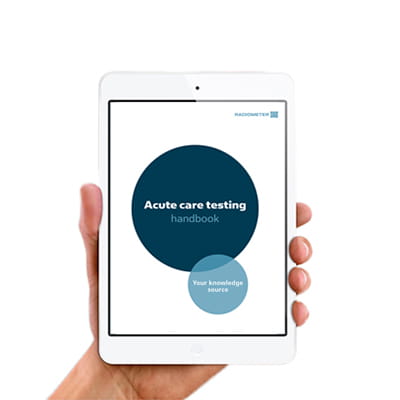Printed from acutecaretesting.org
November 2017
Drug-induced hypocalcemia (and hypomagnesemia) highlighted
Summarized from Morris C, Pillans P. Medicinal mishap. Australian Prescriber 2017; 40: 79-80
Plasma calcium is maintained within normal limits by the integrated action of three hormones: parathyroid hormone (PTH); the vitamin D-derived renal hormone, calcitriol; and the thyroid hormone, calcitonin.
Hypocalcemia (reduced blood calcium), which is defined as corrected total plasma calcium <2.20 mmol/L and ionized plasma calcium <1.15 mmol/L, is a quite common electrolyte disturbance, though less common than hypercalcemia. Mild hypocalcemia is usually asymptomatic, but more severe hypocalcemia (corrected total calcium <1.80 mmol/L) is associated with symptoms that reflect the physiological importance of ionized calcium for neural and neuromuscular transmission.
They include tetany (involuntary muscle contraction), paresthesia (abnormal sensation) and seizures. Psychiatric manifestations, which can occur in those with long-standing hypocalcemia include: anxiety, depression and psychosis.
Causes of hypocalcemia include PTH deficiency (hypoparathyroidism), vitamin D deficiency, chronic kidney disease (CKD) and alkalosis. Neonatal hypocalcemia can occur transiently during the first few days of life, particularly in premature infants, and hypocalcemia is a quite common feature of critical illnesses such as sepsis, severe acute kidney injury and severe acute pancreatitis.
Massive blood transfusion can precipitate hypocalcemia due to calcium binding by the citrate added to donated blood to prevent it from clotting. Rarely, hypocalcemia is caused by prescribed drugs. This recently published paper describes a case of drug-induced hypocalcemia.
The case concerns an 81-year-old man who presented with lightheadedness and paresthesia in both arms and legs. He had a complex medical history that included ischemic heart disease, chronic kidney disease, hypertension and gastroesophageal reflux disease (GERD).
His list of prescribed drugs included omeprazole 20 mg daily to alleviate GERD-related symptoms caused by reflux of gastric acid. Omeprazole is one of a class of very commonly prescribed drugs called the proton pump inhibitors (PPI) that have therapeutic effect by inhibiting gastric acid production.
Physical examination was unremarkable save an unsteady gait, but laboratory testing revealed profound hypocalcemia (corrected total calcium 1.10 mmol/L). Creatinine was raised and eGFR reduced in line with preexisting CKD. Sodium was normal (142 mmol/L) and potassium was low normal (3.5 mmol/L).
Further testing in the light of severe hypocalcemia revealed severe hypomagnesemia (magnesium 0.19 mmol/L – reference range 0.70-1.10 mmol/L) and low normal PTH. This persuaded attending clinicians that long-standing omeprazole use was the principal cause of reduced magnesium and calcium.
Treatment included calcium and magnesium replacement therapy and withdrawal of omeprazole. An alternative (non-PPI) drug, ranitidine, was prescribed to alleviate ongoing gastrointestinal symptoms. This alternative drug inhibits gastric acid secretion by a different mechanism to that of PPI’s. Both calcium and magnesium were within normal limits a week later.
Final confirmation that this was a case of PPI-induced hypomagnesemia with consequent hypocalcemia came 10 days later when the patient was again admitted to hospital, this time with a bleeding duodenal ulcer. This was successfully treated, and the patient was restarted on another PPI drug (pantoprazole) which precipitated a second episode of hypomagnesemia. This was subsequently alleviated with regular thrice-daily, magnesium sulphate tablets.
In discussion of this case history the authors reflect on the increasing number of case reports of PPI-induced hypomagnesemia. Hypocalcemia is common in such cases and is a result of the functional hypoparathyroidism that is thought to be induced by severe hypomagnesemia. It is thought that PPI drugs impair active and passive absorption of dietary magnesium, and hypomagnesemia is a cumulative effect of prolonged PPI use.
This tendency to hypomagnesemia would be potentiated by conditions, such as CKD, malabsorption, etc. that predispose to magnesium deficiency.
May contain information that is not supported by performance and intended use claims of Radiometer's products. See also Legal info.
Acute care testing handbook
Get the acute care testing handbook
Your practical guide to critical parameters in acute care testing.
Download nowScientific webinars
Check out the list of webinars
Radiometer and acutecaretesting.org present free educational webinars on topics surrounding acute care testing presented by international experts.
Go to webinars







